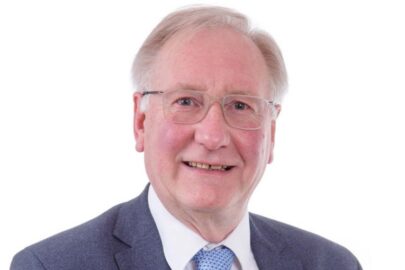The coronavirus epidemic has put a new emphasis on individuals’ attitude to risk.
With regard to the virus itself there are those who say the probability of me catching it, then dying are so remote that all the restrictions are a waste of time and all they are doing is damaging the economy. On the other hand, there are those who are genuinely afraid of the virus.
Here I have to declare an interest. My family has suffered four deaths in as many weeks, none have been tested for Covid-19. My wife, six weeks on from first being diagnosed with the virus but not tested, is back in bed with breathing difficulties. I will try to be even handed.
Many of those who are willing to take a risk on the virus are concerned about the impact on the economy that will result from ongoing measures to contain the spread of the virus. Those that are concerned about catching the virus place that risk above the financial consequences of trying to contain it.
An investment adviser must know his client and provide solutions that are appropriate to their attitude to risk and capacity for loss.
At first sight, you may consider an individual who is not afraid of the impact of the virus on themselves as being risk-averse. It could be the fear of the impact of the economic fall-out on their financial wellbeing that is driving their attitude to the virus.
On the other hand, is the person who is afraid of the virus not worried about the economic consequences? They could have a high tolerance of financial risk which leads them to worry more about the consequences of the virus. This could be influenced by personal health and family circumstances.
Understanding customer attitudes and their drivers has never been so important.
From my experience, the impacts of the virus have not hit everyone in the same manner. Some people have had their lives turned upside down with very little warning. 60,000 unexpected deaths according to analysis of data from the European Centre for Disease Prevention and Control – fast approaching the total civilian casualties for the UK in World War II – means there are a lot of people out their grieving. Each one of those deaths was a father, mother, child, friend, neighbour or colleague.
Yet I come across people who ask, “Do you know anyone who has had the virus?”
Personal experience in recent months will have as much to do with the current attitudes of individuals which could lead them to make decisions, they may later regret.
My father died 30 years ago; I have always been grateful to my mother’s neighbour because both my sister and I lived some way away. Her neighbour, who was a social worker, made my mother promise her not to even think about moving closer to one of us for at least 12 months.
In the end, my mother stayed in her house for 29 years surrounded by friends and caring neighbours in familiar surroundings and was far happier than if she had moved. Although that was certainly a pull following my father’s death.
There are a lot of confused people at the moment. I don’t mean confused in a derogatory way. Everyone has been affected, be it through being an essential worker, the impact of the virus, or the impacts of the lockdown.
Are the financial decisions they are making now being made for the right reasons? Are their objectives clear? Have they fully understood the risks of the actions they are considering?
We cannot, as my mother’s neighbour did, say do nothing for 12 months. What we can do is to understand their recent experiences and ensure they understand all their alternatives and the pros and cons of each of them.
This is going to be particularly true of later life advisers.
Personally, I do not like the term ‘vulnerable clients’; it implies there is something sub-standard about them. Our role is to help our clients find the best solutions for them. Only by fully understanding them can we do that.
Bob Champion is chairman of the Air Later Life Academy
